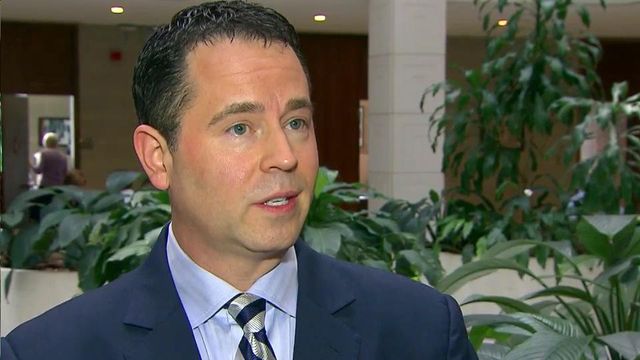State pays thousands to employees on leave
Over the past two years, nearly 900 state workers were sent home while the state investigated their workplace conduct. While on investigatory leave, the workers collected more than $1.7 million in salaries, state personnel records show.
Database: State workers put on investigatory leave
When employees face allegations of harassment, misuse of state property, poor job performance or other issues, state leaders say sending them home with pay makes sense because there’s less interference with investigations.
State agencies can place employees on investigatory placement for up to 30 days, according to a rule in the N.C. Administrative Code, which went into effect on Oct. 1, 1995. Beyond that, the agency must get an extension approved by the Office of State Personnel. The WRAL Investigates team found some workers getting paid for months while awaiting the outcome of their investigation.
Of the 888 workers put on investigatory placement in the past two years, 209 were eventually fired. They collected about $483,000 while the state made up its mind. Another 203 were punished, demoted, suspended or quit. More than half the workers put on paid leave were reinstated with no demotion or suspensions.
Records show the average leave took about 10 work days to resolve. Some took much longer. One state Department of Transportation employee was placed on leave for 39 days. The worker was paid $21,493 and then was fired. A state Department of Revenue employee was on leave for more than two months in the summer of 2011, collected $14,000 in pay and then retired.
One worker from the state Department of Health Human Services collected more than $17,000 while sitting at home at for six months. The worker was eventually suspended without pay, according to personnel records.
During his first State of the State address, Gov. Pat McCrory talked tough to North Carolina's 125,000 state workers about doing their jobs. “We want to reward our talented state employees, but seat warmers must be a thing of the past,” he said.
In an interview this week, McCrory said investigatory leave is part of state administrative code and allows supervisors to remove an employee from the workplace with pay if there's a question of safety or disruption.
“We looked at (investigatory placement) when we took over this office because we were concerned about these numbers. We know we want to pay people to do their job, not to sit at home,” McCrory said. “The purpose is: you want to get all the facts before dealing with an employee.”
Steve Sloan, a former assistant director with the state Division of Emergency Management, was placed on a 30-day investigatory leave in April 2012 while the agency investigated nepotism reports. He and another emergency management employee involved in the case were eventually fired. Another worker quit.
Sloan and the other two employees were paid a combined total of about $21,000 while the state investigated.
Duane Deaver, a former State Bureau of Investigation agent who came under fire over questionable blood analysis, was paid about $14,000 while on leave for more than two months. He returned to work, only to be fired in January 2011.
Dana Cope, executive director of the State Employees Association of North Carolina, says the paid leave is necessary to protect the employee and the agency.
“Yes, it does cost money, but it's all in the effort to provide justice,” Cope said. “You wouldn't want to penalize that public servant for doing their job day in and day out for having to face an allegation that is simply untrue. That would be unfair.”
While hundreds of workers got their jobs back, the state still paid out about $788,000 while they stayed home. McCrory says his administration is focused on reducing the number of paid leave cases and their duration. Records bear out a 20 to 25 percent decrease so far.
“We're trying to do it much more quickly, so we aren't wasting taxpayer money,” McCrory said.











